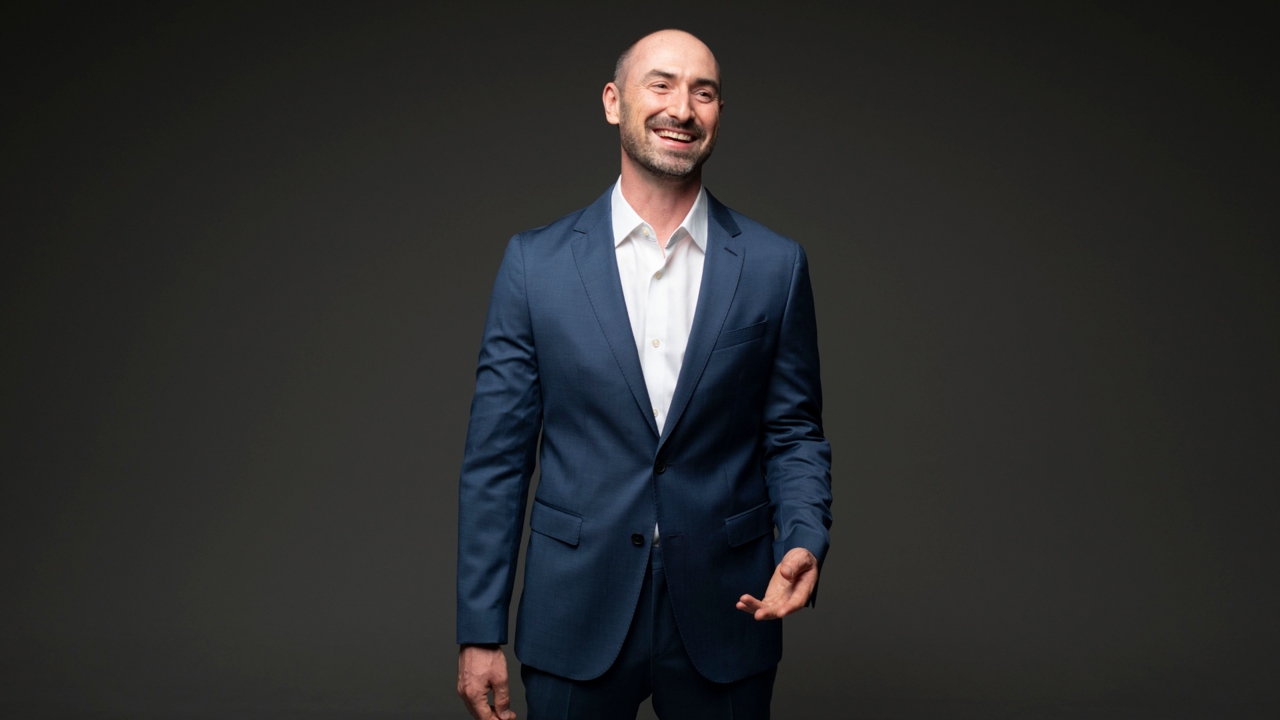Events and Tickets
Spotlight: Peter Whelan

There’s obvious glee in Peter Whelan’s voice when he describes what lies ahead for him as National Symphony Orchestra Ireland’s first Artistic Partner, a role that will see him conducting two concerts this season.
The appointment sees the globe-trotting Whelan returning home to his native Dublin, and to National Symphony Orchestra Ireland with whom he gave his first professional concerts as a bassoonist.
‘I’m very excited. Having a connection with where I’m from and the musicians and audiences who live there is special. I’ve performed with the orchestra in various capacities over the years, more recently as a conductor, so it’s wonderful to have the relationship blossom into something more.’
Whelan’s formative experiences left him with ‘a fondness’ for the musicians that has grown into ‘enormous respect and admiration’ as the relationship developed and changed. He is grateful for his early time in the orchestra’s rank and file: ‘Being a bassoonist was a very useful education. You get to see how everything works inside the orchestra, and you learn how to breathe with the music. That’s a good lesson for a conductor too.’
The bassoon also led Whelan towards the music of the Baroque, in which he is now a widely admired specialist. ‘The best music for bassoonists is Weber, Mozart and a whole lot of music in the Baroque. I love the freshness of the music and how directly it speaks to audiences.’
Whelan has come a long way in the short time since founding Ensemble Marsyas in 2011. As Artistic Director of the Irish Baroque Orchestra since 2017, he has been raising its profile with a coveted Olivier Award for Vivaldi’s Bajazet in 2022 and a BBC Proms appearance in 2025. A curator for the Norwegian Wind Ensemble, he takes up Music Directorship of San Francisco’s Philharmonia Baroque Orchestra in 2026.
How he juggles such commitments, Whelan explains: ‘The jigsaw fits together nicely. They’re complementary to what I’ll be doing with NSOI.’ His tenure as Artistic Partner begins with a reminder of his Baroque credentials in music by Joseph Bologne and Mozart alongside the Classical elegance of Mendelssohn.
'It’s a balance between where I’m at and what the orchestra does. They play a huge range of music and it’s so impressive how open-hearted and ready to try new things they are.’ Of Bologne he pointedly comments: ‘we
need to hear more of him’; of Mozart he remarks: ‘you always come away a better person for having listened
to him’.
Mendelssohn’s ‘Scottish’ Symphony and the two Brahms works in his second concert – including his Fourth Symphony ‘with its wonderful, Baroque-style passacaglia’ – finds Whelan ‘pushing out the boat in terms of repertoire for me, stretching into the Classical and beyond. But there are always connections to be found’. He will bring an approach rooted in ‘historically informed performance’ that has steadily worked its way into 19th-century music. ‘You can use it to approach any kind of music. What it boils down to is reassessing music; trying to imagine musicians and audiences are hearing and feeling it for the first time. It’s an attempt to keep music’s original impetus and vitality.’
His second concert features Weber’s virtuosic, First Clarinet Concerto, Whelan declaring himself ‘a big fan’ of the composer. ‘I love the language he uses; it’s fully operatic and pushes wind players to their extremes, and the clarinet into the reaches of the voice, with ample rewards for the audience.’
As for what his new National Symphony Orchestra Ireland role will bring, Whelan sanguinely offers: ‘You always have to leave enough space for what the musicians are telling you; keep the reins loose and be ready

